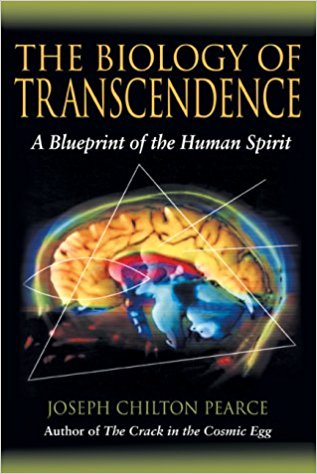Written by Joseph Chilton Pearce,
Nature’s Own Explanation of Human Spirit
Review by Gunnel Minett
In this book we are presented with a very different and exciting explanation of human behaviour, based on a biological explanation of the natural development ofthe human brain. This, in turn, is set in the context of how we are influenced by religion and culture.
In the first part of the book Pearce gives a very thorough presentation of the latest research and biological understanding of the evolution of the human brain and why and how it has developed. We learn how nature has “designed” our natural behaviour to match the development sequences of the different parts of our brain – the reptilian, the mammalian and the neo-cortex and frontal lobes. To match the brain’s development, our children will benefit from a natural birth (rather than caesarean and/or drug-controlled), breast-feeding because it helps the child to set a framework for their visual impressions etc. We also learn that the latest brain research also identifies not only four neural centres of the brain but also a fifth centre located in the heart.
Pearce then moves on to look at how the development of the brain matches how we bring up our children and the impact of our social and cultural environment, linking this to what he calls the anatomy of evil where he looks at what parts of our cultural conditioning lead to negative behaviour despite good intentions. Pearce explains that nature has made us, quite literally, designed for transcendence, and how it is the dynamic interaction between head and heart that allows us to transcend from one evolutionary place to another. It is the breakdown of this interaction that causes evil to occur. Breakdown occurs when cultural dictates in society or religion move children away from their natural development. As a consequence children grow up and become violent adults involved in ongoing conflicts and crises within society and between people.
The final part of the book deals with a situation beyond enculturation. Here Pearce reminds us that we are not doomed to endless cycles of hatred and hurt. We now have access both to transcendent teaching to guide us on our path and to biological research that will confirm the right way forward.
The book presents a fascinating and original account of the very basis of our societies. I agree wholeheartedly with Jean Houston’s comment on the book that here “in brilliant and incisive words, is the foundation for a new mind and a new world.”
Park Street Press, Rochester, Vermont, USA, 2002 ISBN 089281990-1

